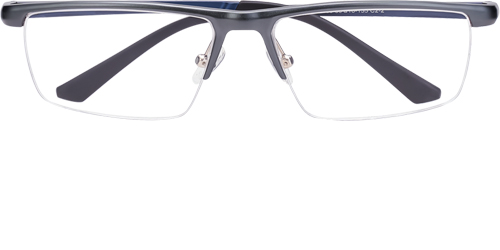Snow capped winter is walking towards us, the warm sun in winter may be everyone's favorite, but don't forget to protect your eyes while bathing in the sun!
Do You Need UV Protection in Winter?
Most people know that the UV intensity in summer is high, which will cause damage to the eyes. In fact, the UV(Ultraviolet) in winter should not be underestimated, too. Although the sunlight in winter is much softer than in summer, the ultraviolet reflected by the snow can reach 80%, which is four times higher than that reflected by the beach from 10% to 20%. Therefore, what you need to prevent is not only the UV from the sky, but also the UV reflection from the ground.
Eyes Need to be Protected When Go Out in Winter
Snow blindness, also known as keratitis, is a painful eye condition caused by overexposure to ultraviolet (UV) light. When too much UV light hits the transparent outer layer of your eyes, called the cornea, it essentially gives your cornea a sunburn. When skiers or enthusiasts skiing in the snow without sunglasses protection, they are very vulnerable to threats.
Here are some common symptoms of snow blindness:
• Painful eye(s)
• Burning and redness
• A gritty, sandy feeling, like something is in your eye
• Light sensitivity
• Watery or blurry vision
• Headaches
But the snow blindness is actually easy to cure, you only need to stay away from the UV environment and properly rest the eyes.
Eye Care Tips in Winter:
Dry, cold air in winter and sunshine without shade will hurt or even damage your fragile eyes. It is of great importance to protect your eyes in cold winter. The following methods may be helpful:
- Wear UV protection sunglasses
It is well known that excessive ultraviolet radiation increases the risk of cataracts and skin cancer. That's why experts recommend sunscreen and sunglasses for prolonged outdoor activities.
Do you think that only the scorching sun can hurt your skin and eyes? That’s not correct. Because the ultraviolet power in winter is the same as that in summer. In addition, the UV reflected by snow in winter also increases the risk of UV exposure (although not necessarily get sunburned).
- Wear a brim hat
Wearing a hat with a brim will greatly reduce the amount of UV radiation slipping around the side of your sunglasses. A wide-brimmed hat to keep UV rays off your face and out of your eyes.
- Keep your eyes moist
Dry outdoor air, heat from a furnace or fire, wind, and circulating indoor air can evaporate your tears to cause dry, itchy eyes. This can be particularly uncomfortable if you already suffer from dry eye, a chronic condition in which your body doesn’t produce enough natural tears to lubricate your eyes. Use artificial tears or other eye drops to keep your eyes moist. Deflect air blowing from furnace vents; Using humidifier to put moisture into room air will also be helpful.
- Blink more
When you are focused on complex visual tasks, such as working on a computer, your eyes tend to blink less frequently. This can make dryness worse, causing sore or burning eyes. So it is important to try and remember to blink regularly whenever you feel your eyes are dry at work.
- Drink plenty of water
Don’t forget to keep hydrating. You understand to drink plenty of fluids when it's hot outside, but it's just as important to stay hydrated in the winter to help prevent dry eyes. Getting enough water daily can make a huge difference, particularly if you are going to be outside in dry and windy conditions.
Excluding the tips mentioned, it is also important to supplement the nutrition of the eyes from the aspect of diet. Fish, vegetables and green tea are good eye protectors! Fish such as mackerel, tuna, salmon, anchovies, and trout is high in omega-3 fatty acids that could help alleviate dry eyes, 3.5 ounces of these fatty fish to get about 1 gram of omega-3s. Vegetables, especially carrots and spinach, are rich in iron, vitamin A, C and vitamin E, which can maintain the normal function of epithelial tissue and relieve black eye circles. In addition, the anti-oxidants in green tea are absorbed by different parts of the eye and have a protective effect.
















